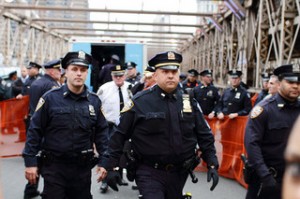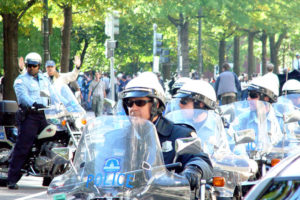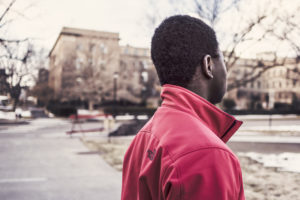In a previous post, we addressed the controversy surrounding the stop-and-frisk practices of the New York City Police Department. We also discussed Floyd v. City of New York, the class action lawsuit alleging that New York City officials and NYPD officers violated the constitutional rights of hundreds of thousands of people via the NYPD stop-and-frisk program. In the month since our last post about Floyd v. City of New York, there have been some major developments in the lawsuit. This post will provide an overview on these developments and preview what’s to come in the landmark case.

Floyd v. City of New York
In August, District Judge Shira A. Scheindlin issued a 198-page ruling in Floyd v. City of New York. She agreed with the plaintiffs in the class action civil rights lawsuit that the NYPD’s practice of stopping individuals on the street and frisking them on the basis of “reasonable suspicion” that a crime has been committed was unconstitutional. She also stated that the program had led to “indirect racial profiling” of young minorities in New York City.
Along with the ruling, Judge Scheindlin issued a detailed “Remedies Order” in which she demanded that the stop-and-frisk program be scaled back immediately. She appointed a dozen law professors to a panel designed to help implement reforms of stop-and-frisk practices by the NYPD. Judge Scheindlin also selected a federal monitor to oversee the reform process.
After the decision, Mayor Michael R. Bloomberg accused the judge of deliberately denying “a fair trial” and announced that the city would file an appeal.
New York City’s Second Circuit Appeal
Shortly after Judge Scheindlin’s August ruling, attorneys for New York City challenged her decision and the sweeping changes she ordered to the NYPD’s stop-and-frisk program in an appeal to the United States Court of Appeal for the Second Circuit.
As part of their appeal, New York City officials maintained that Judge Scheindlin was biased and that defendants including the NYPD had not been given a proper trial.
In a decision that shocked many in the legal community, a three-judge panel for the Second Circuit ordered Judge Scheindlin off the case. The ruling, which is available in full here, stated that she violated the judicial conduct code by giving media interviews regarding stop-and-frisk practices and by encouraging the Floyd v. City of New York plaintiffs to file the lawsuit.
The Second Circuit held that Judge Scheindlin’s actions undermined the appearance of judicial impartiality in the case. The Second Circuit did not rule on the merits of her decision. Instead, the panel’s decision “stayed” (or suspended) the reforms and independent monitor Judge Scheindlin ordered. It scheduled arguments in the case for next spring.
Attorneys for Judge Scheindlin have asked the Second Circuit to lift its stay of her orders.
New York City Asks Second Circuit to Speed Up Appeal
On November 9, attorneys for New York City asked the Second Circuit to vacate (rather than suspend) Judge Scheindlin’s order. It also asked the court to speed up the appeals process so that it can be completed by January 1, when Mayor-elect Bill de Blasio takes office.
Commentators believe that the city’s filing was aimed in part at ensuring that Judge Scheindlin’s rulings are effectively erased before Mayor Bloomberg leaves office. In a statement to the New York Times, the legal director for the New York Civil Liberties Union called the recent legal maneuvering by attorneys for New York City a “last-minute gambit to erase … [Judge] Scheindlin’s findings of discriminatory and unlawful stops before the incoming de Blasio administration can withdraw the pending appeal.”
If left intact, Judge Scheindlin’s decision could tarnish Mayor Bloomberg’s legacy. Mayor-elect de Blasio campaigned on reforming the NYPD’s stop-and-frisk practices, and called the program a form of racial profiling. Mayor-elect de Blasio has promised to drop the city’s appeal in Floyd v. City of New York once he is sworn in.
What’s Next in Floyd v. City of New York
The fate of New York City’s stop-and-frisk program is in the Second Circuit’s hands. It must soon rule on petitions by attorneys for New York City and Judge Scheindlin.
If the Second Circuit rules in favor of New York City and vacates Judge Scheindlin’s order, Mayor-elect de Blasio could take office without a Police Department under court supervision.
If the Second Circuit declines to vacate Judge Scheindlin’s order and allows New York City’s appeal to proceed after Mayor Bloomberg’s term expires, Mayor-elect de Blasio could withdraw the appeal upon taking office. Without an active challenge to Judge Scheindlin’s decision, the United States District Court for the Southern District of New York would ultimately be responsible for the disposition of Floyd v. City of New York.
While it is not clear how the Second Circuit will rule on the various petitions and appeals that are currently before the court, one thing is certain. The legal wrangling in Floyd v. City of New York will be interesting to watch in the coming weeks.
For more information on the impact of stop-and-frisk searches on New York City and Floyd v. City of New York, visit the Times Topic: Stop-and-Frisk section of the New York Times website.



